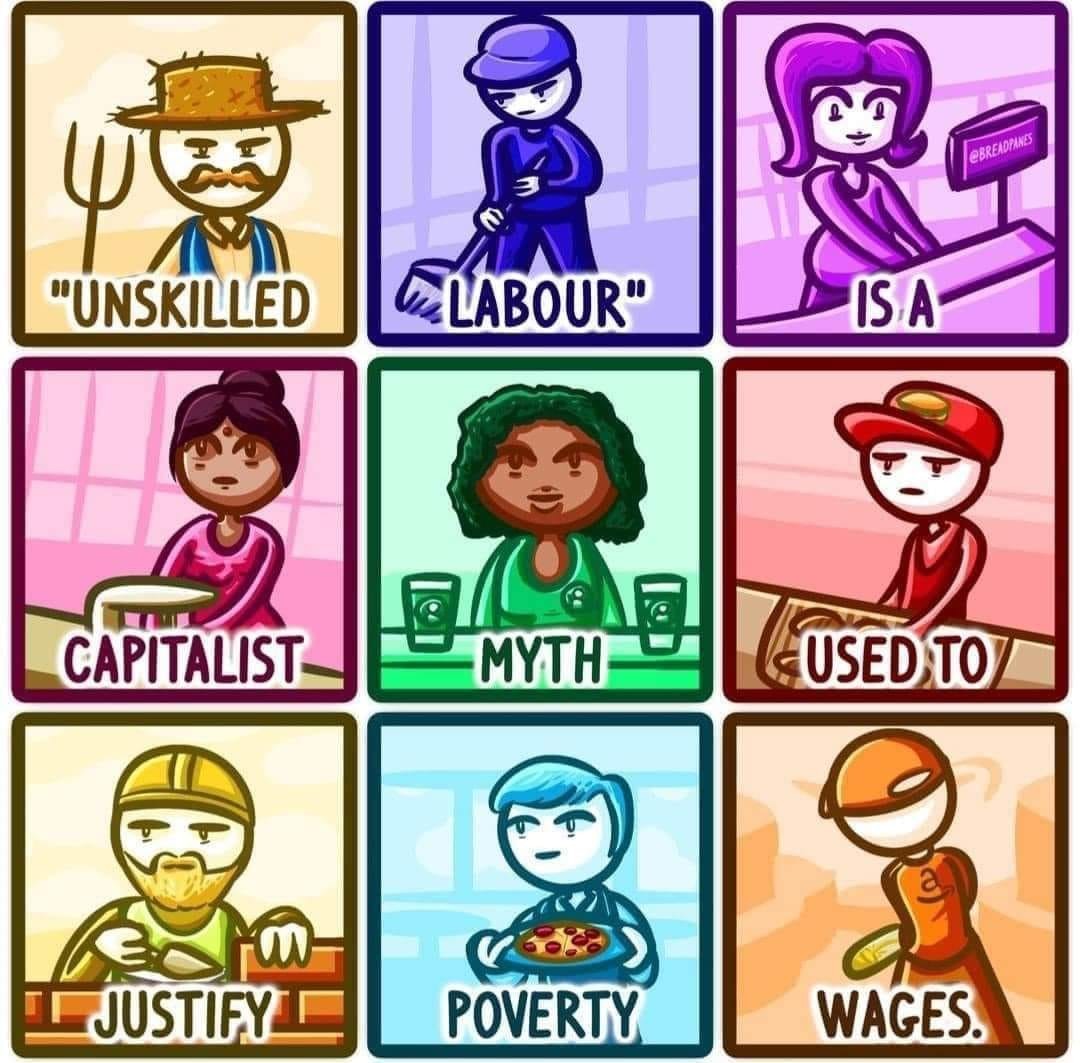this post was submitted on 21 Jan 2024
636 points (88.1% liked)
unions
1566 readers
3 users here now
founded 2 years ago
MODERATORS
you are viewing a single comment's thread
view the rest of the comments
view the rest of the comments

"Skill" in this sense can be boiled down to "replaceability due to automation." The Industrial Revolution was as much about displacing highly trained, highly skilled craft laborers as it was about increasing raw production numbers. Highly trained craft workers up to that point handled most production of most things that weren't food. To get around paying these folks for their training and skill, industrialists invested in automation so they could replace people who had literally trained for years in that craft with someone who just walked in off the street. Instead of having a team of carpenters who'd trained for years working in concert on every step of a process, you had a series of individual stations on a production line and only needed to train a new hire against their single specific role in the production line, not the whole process. The breaking-up of labor into small steps shared out across teams, in roles that could be trained in weeks or days instead of years, is kind of one of the core techniques of industrial production.
Because of the relatively less training needed to get started on the production line, factory owners were able to drive down wages substantially across the board and displace craft labor. The industrial revolution boosted profits as much by driving wages down as it did by increasing production, and using a hierarchy of "skill" (where the factory owners are constantly trying to replace workers with leverage) to pay workers less was one of the ways it did that.
Anyways, so yeah. There's always been work that's more skilled and less skilled, but the term "skilled labor" sort of derives from this phenomenon during the Industrial Revolution. In that sense, it is totally bullshit meant to drive down wages.
EDIT: Found some snippets on general history sites regarding this process: https://www.digitalhistory.uh.edu/disp_textbook.cfm?smtID=2&psid=3517
https://www.loc.gov/classroom-materials/united-states-history-primary-source-timeline/rise-of-industrial-america-1876-1900/work-in-late-19th-century/
https://education.nationalgeographic.org/resource/industrialization-labor-and-life/
A related art movement, the Arts and Crafts movement, which arose as a response to the impact of industrialization on craft labor: https://www.thecollector.com/industrial-revolution-arts-and-crafts/\
EDIT: A word